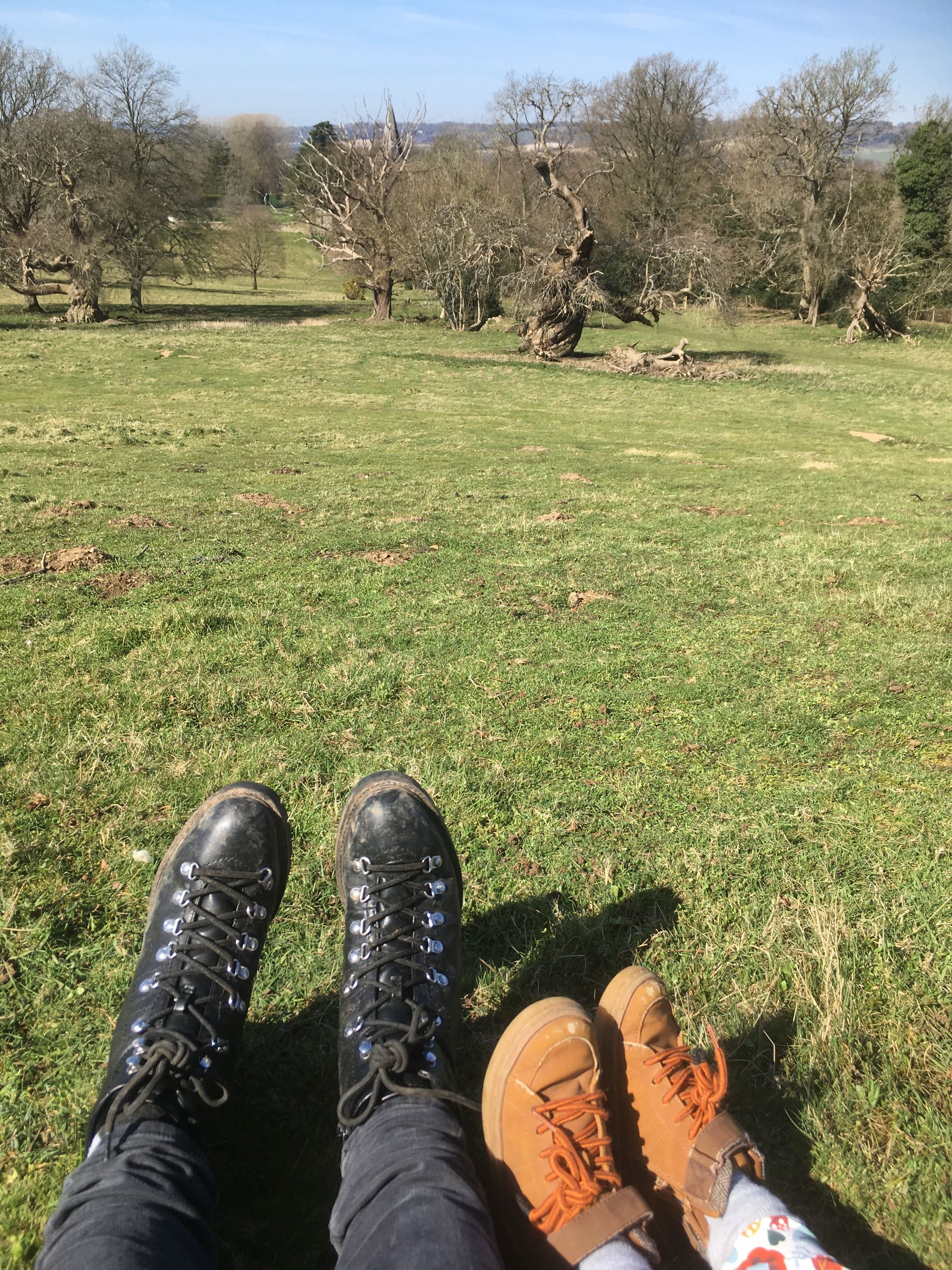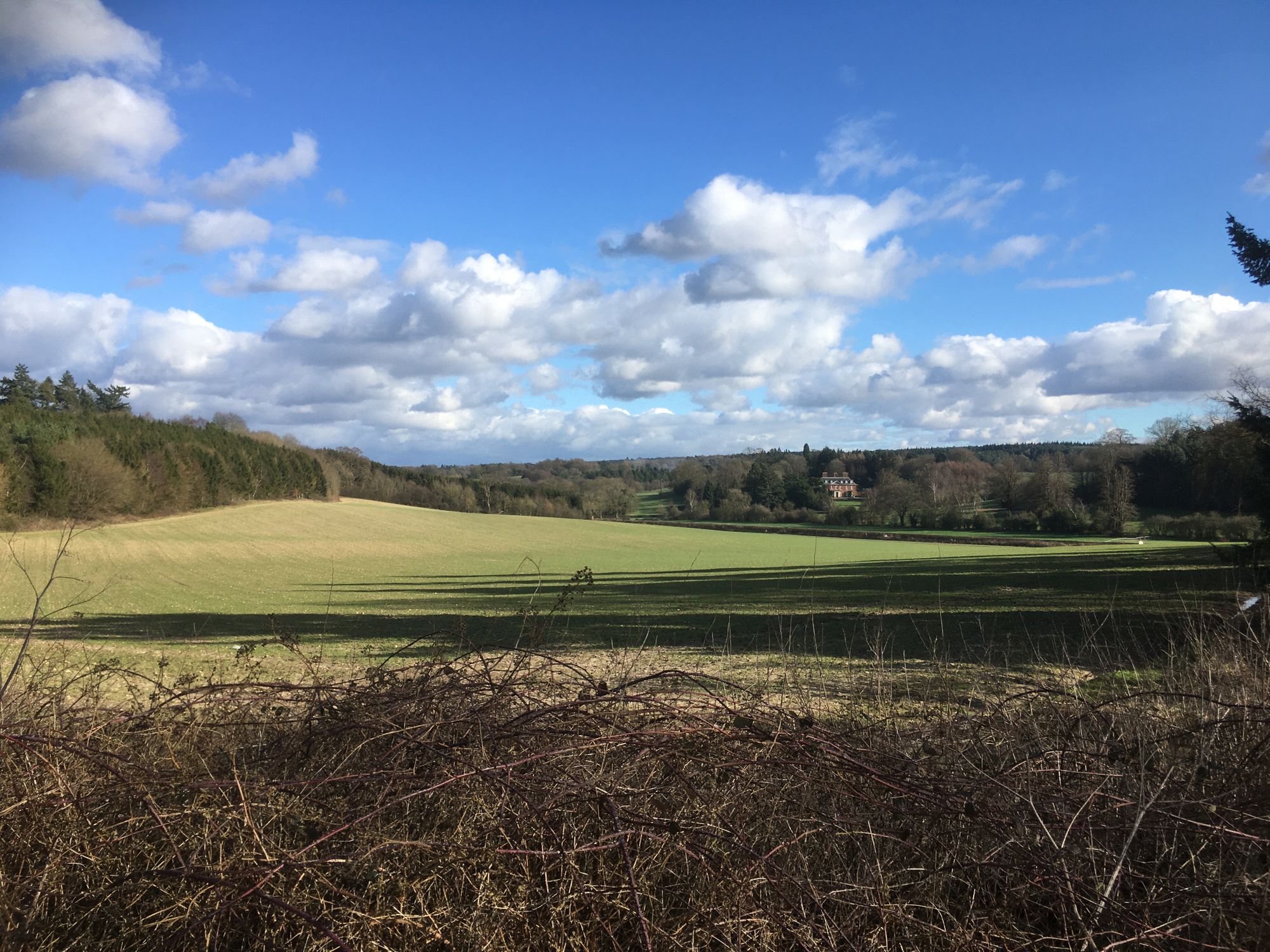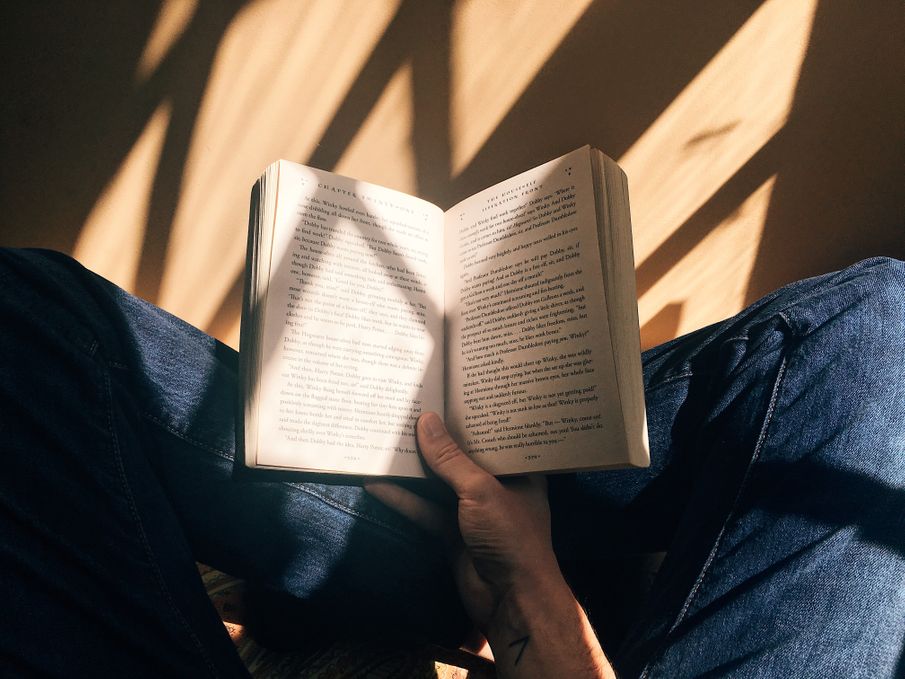Georgina Probert talks to Happiful about how she and her family navigated their way through the first week in self-isolation, and why they are embracing slow living for the foreseeable future
When Prime Minister Boris Johnson announced on Tuesday that the majority of the UK population must stay at home, myself and my family were already one week into self-isolation. Being asthmatic and 27 weeks pregnant, I am in the 'vulnerable' category, so we decided to pull our four-year-old daughter, Imogen, out of childcare and to work from home, with no social contact from friends or family. My husband, Tom, is a full-time teacher and I run my own freelance business, so we had the challenge of balancing our careers, and keeping a preschooler entertained.

The first few days were difficult; the days seemed to drag and we all had to adjust to a new routine. My anxiety spiked – particularly around the uncertainty of what would happen to my baby if I did catch coronavirus, but also the effects that a prolonged lack of social contact with other children would have on Imogen. The constant uncertainty, social media discussions and negative press only made these feelings worse.
A change in attitude
After a particularly difficult day that involved at least two of us crying, we made a conscious decision to try to block out the stress and worry, think positive and make the most of this unscheduled time together. Once we got over the practicalities of not leaving the house, a week down the line we’ve found ourselves in a happy place and are truly embracing slow living.
Self-isolation has been a massive change in lifestyle, and I’m aware I am fortunate to share this experience with my family. We have gone from leading an extremely busy lifestyle – juggling teaching, running a business, preschool and childminder drop-offs and pick-ups, and regularly seeing friends and family – to no rushing around and being able to spend time on everything we do. At first, having nowhere to be and no one to see felt daunting and overwhelming, but now it feels freeing. We take each day as it comes.
“We’ve embraced gardening. I’m not naturally green-fingered, but having spent hours clearing weeds from flower beds and cutting back brambles, I am astonished at how nice the garden looks and how proud I am of my hard work."
How we fill our days
One of the main changes to our daily routine has been stretching out our mornings. This involves re-training our body clocks to wake up later. For the first few days of self-isolation, we were waking up at around 6-6.30am. The days seemed to really drag when we started them so early. We’ve slowly been waking up later, which is no small task to encourage a toddler to stay in bed! We take our time over breakfast, making it a family gathering, a time to actually enjoy the taste of our food.
From hermit to outdoors enthusiast
I am not a natural outdoors person. I have severe hayfever, which means that during most seasons there is something outside I’m allergic to. However, being outside has been crucial for my mental health. We’re fortunate enough to have a garden, so we try and explore this as much as possible – even if that means wrapping up in hats, gloves and scarves – and have been taking daily walks.
We’ve embraced gardening. I’m not naturally green-fingered, but having spent hours clearing weeds from flower beds and cutting back brambles, I am astonished at how nice the garden looks and how proud I am of my hard work.
We are very fortunate to live in the Kent countryside and there's plenty of local woodland to explore. Imogen doesn't like walking, so we’ve been going on 'adventures', finding Gruffalo houses, spotting birds and wildlife, appreciating nature and collecting natural objects in a little bag to take home and study. On our walk earlier this week, we spent a good hour in a field climbing trees, watching sheep and admiring the views. There is something very special about having the time to properly engage with your child and let them explore the natural world.

Enjoying daily 'chores'
While I can't claim to have become Nigella overnight, we are eating much less convenience food and I’m spending time cooking meals from scratch. It’s a joy not to have to rush to get dinner ready once you’ve got home from a busy day at work. I’m embracing creativity with meal planning and the ingredients I can get hold of. Cooking has become less of a chore and more of an experiment. In Imogen's words: “I thought your pasta sauce was going to be disgusting, but it’s actually quite nice!”
We’ve also taken this opportunity to do some redecorating. After a bit of browsing online for interior inspiration, we’ve painted a feature wall in our hallway and Imogen's playroom, with plans to paint the living room next. We gave Imogen a little paintbrush and let her get involved by helping to paint the walls. There is something about not having to rush a task or 'fit it in' that makes it so much more enjoyable.
“Global events and official advice are changing at such lightning speed that I don’t have all the answers. Rather than dwell on this, I’m trying to focus on the things I can control and the positives."
The unexpected benefits of slow living
For us, part of slow living is about appreciating the simple pleasures in life: sitting in the garden and enjoying the warmth of the sun on your face; telling stories and laughing at each others' jokes; watching Imogen happily play by herself; feeling pride at accomplishing a task.
A surprising benefit of a simpler, quieter life is that we’re all sleeping much better. In part, because we don’t have the pressures and stresses of daily life running through our heads. As we are less exhausted in the evenings, we’re enjoying doing the hobbies we used to love, like reading, rather than slumping in front of the TV like zombies.
Another added benefit is an improvement in our relationship. I love my husband very much, but life can be so busy that we’re often like two ships passing in the wind. Being in self-isolation means we now have the time to talk to each other about things other than life admin and our child. I was worried that we would irritate each other, but in fact, we truly enjoy each other's company. Being together so much is something to be cherished rather than endured.

Managing anxiety
While our time in self-isolation may sound idyllic, it has not been without its challenges. I’ve come to realise that most of these have been my own mental blocks. The majority of my fears – aside from catching coronavirus – are all questions that I simply do not have the answers to. How long will we have to self-isolate for? Where will I be able to have my baby? Will my baby be safe once it is born? Will my daughter get to go back to preschool?
Global events and official advice are changing at such lightning speed that I don’t have all the answers. Rather than dwell on this, I’m trying to focus on the things I can control and the positives. This has helped us to not only cope but to thrive in self-isolation. Yes, there are moments when I am fed up with constantly being around my family, and I miss my freedom, our cancelled holiday, postponed theatre trips, dinners and drinks with friends. But, for now, all we can do is focus on the present and enjoy the little victories.
Georgina is currently sharing her self-isolation diary on Instagram @her_hair_my_head, where she also documents her hair loss journey, as she suffers with alopecia.


Comments